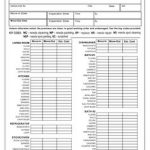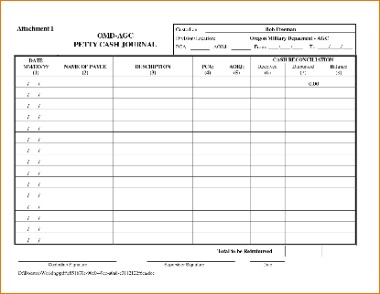
The income statement is essential because it shows a company’s profitability and its ability to generate revenue. By analyzing the income statement, businesses can identify areas where they need to improve their revenue or reduce their expenses. An income statement, also known as a “profit and loss statement,” reports a company’s operating activity during a specific period of time. Usually issued on a monthly, a quarterly, or an annual basis, the income statement lists revenue, expenses, and net income of a company for a given period.

Cost Accounting
The primary objective of an audit is to provide an opinion on the financial statements prepared by management. Auditors must obtain sufficient evidence to support their opinion, which includes examining documents and records, making inquiries of management and third parties, and performing analytical procedures. Auditors may also provide recommendations for improving internal controls and financial reporting processes. Accounting provides businesses with the information they need to comply with legal and regulatory requirements. For example, businesses must prepare financial statements that comply with generally accepted accounting principles (GAAP) and tax laws. By using accounting information, businesses can ensure that they are in compliance with these requirements.
Accountant vs. CPA vs. Tax Pro
They need to follow the standards set by the Governmental Accounting Standards Board (GASB). Overhead costs are ongoing business expenses not directly attributed to creating products or delivering services. Rent, utilities, office staff wages, maintenance staff wages, supplies, equipment repairs, taxes, etc., are all considered overhead costs. In addition to paycheques, employee benefits are also paid from the company fund. The accounting function helps decide how employees are compensated for their work based on how their wages affect a company’s profits.
Understanding Accounting Practices
Forensic accountants often work for law enforcement agencies and insurance companies, analyzing financial records and accounts. Documents prepared by the financial accounting function provide a clear view of the financial position of the company. The main aim is to ascertain the financial performance and position of the enterprise and convey the information to all the stakeholders. This analysis is performed by an external or an internal person by considering the entire business operations. Financial analysis helps identify process loopholes and bottlenecks and determine ways to improve process outcomes, by considering the financial outcomes of processes.
Financial Data Management
The reports generated by various streams of accounting, such as cost accounting and managerial accounting, are invaluable in helping management make informed business decisions. Accounting principles are rules and guidelines that companies must abide by when reporting financial data. Which method a company chooses at the outset—or changes to at a later date—must make sound financial tax deductions that went away after the tax cuts and jobs act sense. Since accounting principles differ around the world, investors should take caution when comparing the financial statements of companies from different countries. The issue of differing accounting principles is less of a concern in more mature markets. Still, caution should be used, as there is still leeway for number distortion under many sets of accounting principles.
Ask Any Financial Question

Financial analysis may also suggest changes to employee departments or ways to streamline production processes to reduce wastage. Proper financial accounting ensures that the payments due to the company are received on time. A management accountant tracks the business profits regularly to ensure that revenue flow into their bank accounts is not interrupted. Accounting is the standard practice of recording financial transactions in your business systematically and maintaining the information comprehensively. Over time, the investment that you make in your financial management resources pays for itself. Bookkeeping records individual transactions while accountants report on the bigger financial picture.
Additionally, accounting statements may not always provide comparable data because principles are not static. Furthermore, increases in net assets that have not been realized may not be reflected in profit and loss accounts. Single-entry accounting is simpler, as it only includes transactions on one side of the ledger. This system is especially useful for small businesses or individuals who don’t need to track complex financial records. Advanced systems can then generate reports such as balance sheets and income statements—and you can also create custom financial reports. An accounting system works by tracking and recording financial data, generating reports, and analyzing that data to make informed decisions.
A publicly owned company is required to prepare and submit quarterly and yearly reports for shareholders containing information on assets, profits, and losses of the business. Private firms also need to prepare financial reports to understand the financial resources of their firm. To simply explain the functions of accounting in business, we can say that it creates a fiscal history for any company. The main functions of accounting deal with tracking and reporting information for internal and external uses. At its core, accounting is a money-management process that tracks and records expenses.
In some cases, financial accountants might make the seemingly counter-productive recommendation that a company take on more debt. However, when seen in a broader perspective, that debt can offset profits and thus help the organization avoid taxation. A computerized accounting system is software that automates the bookkeeping process—from recording transactions to financial reporting. Now that you know the different types of accounting, it’s time to figure out which one your business needs—and you might need more than one. But whatever accounting type you choose, using accounting software helps you automate bookkeeping, keep track of transactions, and make your and your accountant’s work more effortless and efficient. Fiduciary accounting is a type of accounting that deals with the financial transactions of an estate or a trust.
Fiduciary accountants represent the beneficiary and provide information on expenditures, income, assets, and liabilities for that estate or trust. Management accounting is about collecting data, analyzing it and then compiling it into financial reports that people in leadership positions can use to make better business decisions. Cost accounting is a kind of managerial accounting dealing with the cost structure of the business. There are a number of types of accounting, serving a wide range of functions from tax preparation and financial statement preparation to catching white-collar criminals.
Management accounting is the collection, analysis, interpretation, and communication of financial information to managers within an organization. The goal of management accounting is to provide information that will assist in making business decisions. By keeping accurate records, one of the functions of accounting is to figure out how much tax and VAT an organization has to pay. One of the most important managerial functions of accounting is to plan the budget for income and expenses based on what will happen in the future.
- It lists the company’s assets, liabilities, and equity, and the financial statement rolls over from one period to the next.
- Management accounting helps make future projections and minimize risk by using pro forma financial statements, which use financial assumptions to measure and track financial information internally.
- Stakeholders are individuals or entities who have an interest in the financial performance of a company.
- They can take into account external events that impact financial health including taxation, government regulations, or even weather events.
- These standards are used in approximately 168 jurisdictions, including those in the European Union (EU).
Businesses interpret and evaluate financial data derived from financial statements for a variety of purposes. Such financial data helps define an organization’s ability to repay debts, profit-making capacity, work efficiency, accountability, etc. No matter the type of accounting your business uses or needs, all types provide accurate information and help businesses understand their finances.
Accounting also involves analyzing financial data to identify trends and patterns, as well as forecasting future financial performance. This information is used by business owners and managers to make informed decisions about the direction of the company. Various functions of accounting are involved in managing the financial resources of the business optimally. The role of accounting in a business is to enable management with financial data that forms the background for future growth strategies.

Financial accounting plays a critical part in keeping companies responsible for their performance and transparent regarding their operations. Financial accounting is dictated by five general, overarching principles that guide companies in how to prepare their financial statements. The principles are the basis of all financial suspense account in accounting accounting technical guidance. The accrual method of financial accounting records transactions independently of cash usage. Revenue is recorded when it is earned (when a bill is sent), not when it actually arrives (when the bill is paid). Accrual accounting recognizes the impact of a transaction over a period of time.
These statements provide information on the revenues, expenses, assets, liabilities, and cash flows of a company. Financial analysts use this information to calculate financial ratios, such as return on assets, debt-to-equity ratio, and current ratio. Financial accounting is a specific branch of accounting involving a process of recording, summarizing, and reporting the myriad of transactions resulting from business operations over a period of time. Accountants help businesses maintain accurate and timely records of their finances. Accountants also provide other services, such as performing periodic audits or preparing ad-hoc management reports. The basic function of financial accounting is to also prepare financial statements that help company leaders and investors to make informed business decisions.
They might also work as consultants for organizations all over the nation and world. In each case, these accountants need to work closely with department heads in a range of areas. They might need to assess efficiency in a manufacturing facility or discern how to best upgrade IT functions in a small company. They also work to evaluate employee performance to ensure that the organization receives the most productivity possible from the payroll expenditures. When individuals or departments are found to be too inefficient, accountants might seek ways to improve workforce output.
They apply their ability to analyze corporate health to deals that can include initial public offerings, mergers, and acquisitions. In addition to accounting standards, companies must also comply with financial regulations such as the U.S. GAAP (Generally Accepted Accounting Principles) and the Sarbanes-Oxley Act. To ensure accurate tradeweb credit default swaps reporting, companies must have a thorough understanding of their financial data and use reliable accounting methods. They must also have effective internal controls in place to prevent errors and fraud. It provides the necessary information to evaluate the financial performance, health, and stability of an organization.
The two main types of financial accounting are cash accounting and accrual accounting. Internal auditing is when the company’s finances are audited by accountants who work for that company. It’s typically done by tax, financial or managerial accountants, depending on the audit’s purpose.
Public accountants are different from private accountants since private accountants work with one single organization, while public accountants work with a range of businesses and individuals. External auditing is when the company’s finances are audited by accountants who work for a third party. Hiring an accountant to manage bills and expenses will improve your bottom line. An accountant can organize what you owe, ensure fast payments, and track expenses before they grow out of hand. Work opportunities for a financial accountant can be found in both the public and private sectors. A financial accountant’s duties may differ from those of a self-employed accountant who works for many clients preparing their accounts, tax returns, and possibly auditing other companies.
These days, accountants need to ensure that their financial data is stored and managed in ways that are both safe and reliable. For this reason, contemporary accountants can specialize in information technology so that they are best able to keep tabs on how and where the information is stored. Further, they can also ensure that the data is safe and not compromised by unauthorized individuals. Inaccurate reporting can lead to serious consequences, such as legal and financial penalties, loss of investor confidence, and damage to the company’s reputation.
